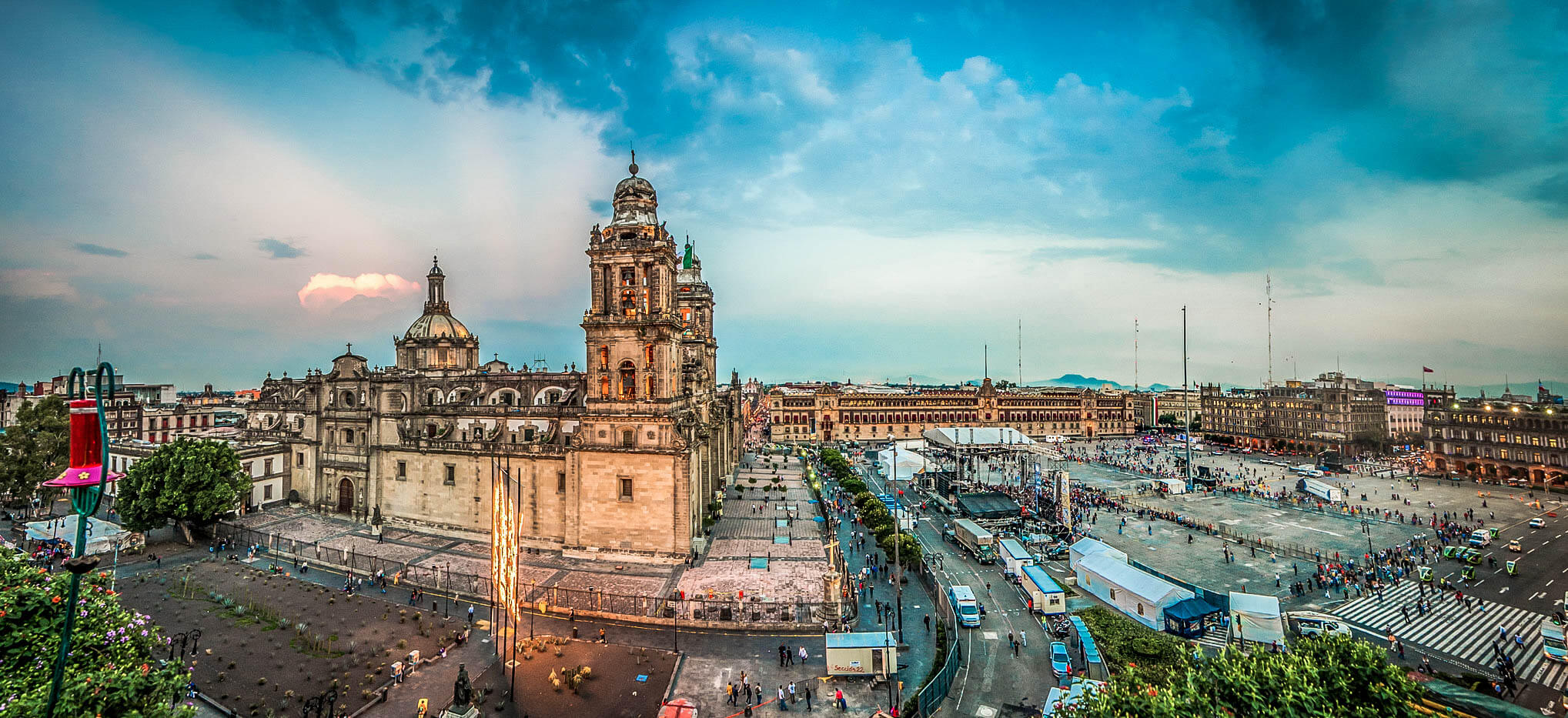Meat cooked for hours in a hole in the ground. Countless varieties of chili peppers. Beans and corn as far as the eye can see. But Mexican cuisine wouldn’t be the international force it is today without the imaginative minds who stepped up and shaped it, undaunted by the prospect of tinkering with traditions that date back millennia. Enrique Olvera, Oswaldo Oliva, and Elena Reygadas are just a few of the names on Mexico’s list of influential chefs. All of them deeply appreciate the country’s culinary traditions, but they’re also drawing upon European, American, and even Asian influences to take a cuisine we Germans often think of as “street food” to the next level. When life gives you avocados, make guacamole! And have a tequila, the more hardcore Mexicans would probably add. But as much as Olvera, Oliva, and Reygadas (just to name a few) appreciate tortillas, quesadillas, and a good mole sauce, they’re also incorporating international influences into their dishes and building Mexico’s reputation as a place full of imagination. So it’s no wonder that foodies, tourists and adventurers are flocking to Mexico City, the Yucatán Peninsula, and Cancún these days.
Immigration made easy!
This country has no lack of delicious fruit and vegetables, but it’s that extra pinch of imagination that helps local chefs stand out from the crowd. They’re not the only ones, of course: expats who want to get ahead here will have to use their heads a little, too. For one, you’ll need good Spanish—English is only widespread in the touristy parts of the country, and there aren’t many of those. Having another language like German, French, or Italian is an added bonus, since Mexico is a popular destination for European tourists. But the official language of Mexico is Spanish, and Mexicans are proud of it. A little imagination can also benefit expats when it comes to the country’s bureaucracy. Things can take a while here, and corruption can be an issue— Mexicans see “greasing the wheels” as a normal part of life, which can take prim-and-proper Europeans some time to get used to. Though the immigration process can be slow, it usually goes through without a hitch. Things go much more smoothly when employers can prove that the job is tailor-made for the expat’s specific skill set.
Germans can test the waters there as tourists for 180 days with just a passport; after that, you’ll need a visa in order to rent an apartment and be allowed to work. Many Europeans have taken that leap already—particularly Germans, now that Volkswagen and so many other German companies have opened subsidiaries in the country. A number of international hotel chains have locations in Mexico City, too, and they’re always looking for qualified personnel. Applying in English can sometimes be enough for those hotels, but it’s better if you show you can speak Spanish.
Anything is possible in Mexico
“En México, todo se puede,” they say here. In Mexico, anything is possible. And it’s true! In a country with a job market as diverse and multifaceted as its landscape, everyone can find happiness here. You just have to know where to look. And a little tenacity doesn’t hurt, either. If you can’t get something to work one way, don’t give up. True Mexicans-at-heart can always find a path to their goals, even if it means taking the “long way around” sometimes.
Living and working
Finding an apartment in Mexico City isn’t hard. If you’re planning on buying a place, having an agent makes it a lot easier. Prices are very affordable by European standards. But where do you live in a city that isn’t exactly known as the world’s safest? The trendy, central La Condensa district is definitely worth a look. Other nice areas include La Roma, which is right beside La Condensa, and the Old City, especially around the Corredor Regina. Coyoacán, in the south part of the city, is another great place to live, but it’s a little further off the beaten path. Tourists and expats can feel safe there, and there’s no shortage of events, street markets, museums, great restaurants, and parks nearby. Suburbs like Iztapalapa and Tepito, on the other hand, are a little more dicey; Tepito, the most infamous barrio, is also known as the “fierce neighborhood”. Around 10,000 people sell goods on the black market here every day, which is part of the reason that the cost of living here is only half of what it is in most of Europe. That also means wages are comparatively lower, though, and the official work week in Mexico is 48 hours long. Some places do give Christmas bonuses, but often only half the month’s salary, and employment laws tend to be more theoretical than anything. On the other hand, this gives would-be managers an opportunity to score points with local employees, because if you treat them well, they’re loyal, satisfied workers (gee, you think?). The racist stereotypes of Mexicans as slow and lazy couldn’t be further from the truth. People here are hardworking, and they’re very happy to live and work with foreigners… once you’ve convinced them you’re not a “gringo” (a white American), that is. As tense as the relationship between Mexico and the United States is, you can imagine that there’s a certain amount of contempt for Americans in some places. Many working relationships here aren’t “fixed”— coming and going is easy, and people do it all the time. So don’t worry if you change your mind and decide you’d rather take a different job offer… after all, anything is possible in Mexico!
















